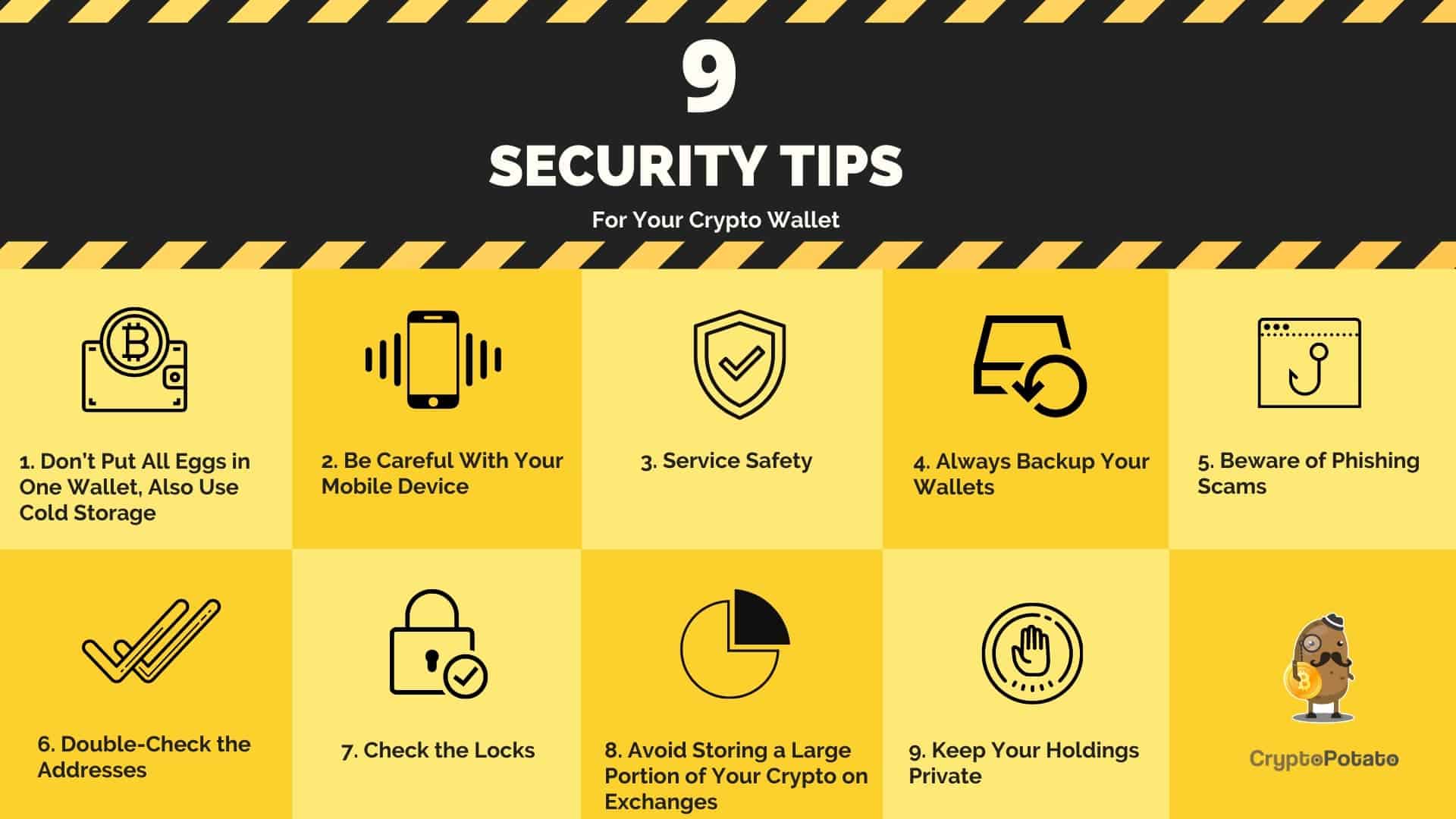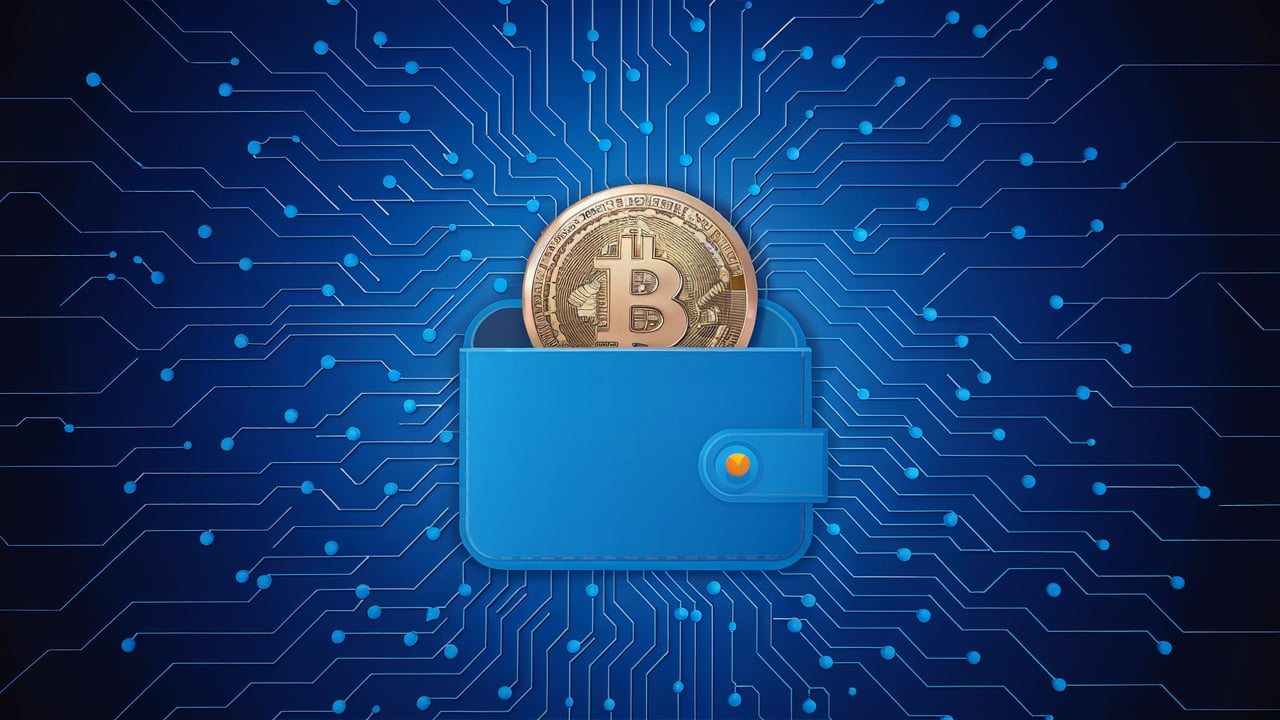Cryptocurrency wallet security is critical to protect your digital assets from hacks and theft. Utilize hardware wallets, encrypt your wallet, and avoid public Wi-Fi to enhance security.
To ensure your private keys are safe, store them offline and only transfer them when needed. Hackers can target wallets through phishing scams or ransomware, making it essential to prioritize security measures. By understanding the risks and implementing best practices, you can safeguard your cryptocurrency investments effectively.
From hardware wallets to encryption techniques, various security solutions are available to keep your digital assets secure. Explore the options and determine the best strategy to protect your crypto holdings effectively.
:max_bytes(150000):strip_icc()/bitcoin-wallet.asp_final-08487560d29e4ad69cf0f1f6337e6a66.png)
Credit: www.investopedia.com
Types Of Cryptocurrency Wallets
When it comes to securing your cryptocurrency holdings, understanding the different types of wallets is essential. Cryptocurrency wallets can be broadly categorized into Hot Wallets and Cold Wallets.
Hot Wallets
A Hot Wallet refers to a cryptocurrency wallet that is connected to the internet, making it easily accessible but also more susceptible to hacking attempts.
- Convenient for frequent transactions
- Accessible from any device with an internet connection
Cold Wallets
A Cold Wallet is a cryptocurrency wallet that is stored offline, providing enhanced security by keeping the private keys away from the reach of potential hackers.
- Ideal for long-term storage of cryptocurrencies
- Less vulnerable to online attacks compared to Hot Wallets

Credit: www.youhodler.com
Common Security Risks
Protecting your cryptocurrency wallet from security risks is crucial. Avoid phishing scams, use hardware wallets, encrypt your wallet software, and be cautious with public WiFi. Keeping your private keys offline and regularly checking for unauthorized transactions can help ensure the safety of your crypto assets.
Phishing Scams
Phishing scams are one of the most common security risks faced by cryptocurrency wallet users. These scams involve attackers attempting to trick users into revealing their sensitive information, such as private keys and passwords. Phishers often send fraudulent emails or create fake websites that mimic legitimate cryptocurrency wallet platforms. These emails or websites may ask users to provide their login credentials or click on malicious links that install malware on their devices.
Public Wifi Risks
Using public WiFi networks can pose significant risks to the security of your cryptocurrency wallet. When you connect to a public WiFi network, your data becomes vulnerable to interception by hackers. They can use various techniques, such as man-in-the-middle attacks, to eavesdrop on your online activities and gain unauthorized access to your wallet. It is highly recommended to avoid using public WiFi networks when accessing your cryptocurrency wallet, especially when making transactions or entering sensitive information.
Private Key Protection
Protecting your private key is crucial for the security of your cryptocurrency wallet. Your private key is essentially the password to your wallet, and if it falls into the wrong hands, your funds can be easily stolen. It is essential to follow best practices for private key protection, such as:
- Using hardware wallets: Hardware wallets, such as Ledger and Trezor, store your private keys offline, greatly reducing the risk of them being compromised by online threats.
- Encrypting your wallet: Encrypting your wallet adds an additional layer of security by requiring a password to access the funds.
- Never giving away your private key: Be cautious of individuals or websites that ask for your private key. Legitimate wallet providers will never ask for your private key.
By actively implementing these measures, you can significantly enhance the security of your cryptocurrency wallet and reduce the risk of unauthorized access.
Secure Practices
Hardware wallets offer an extra layer of security by storing your private keys offline. They are immune to online hacking attempts.
Encrypting your wallet software with strong passwords adds an additional barrier against unauthorized access.
Keeping a separate offline wallet for long-term savings minimizes the risk of online threats.
Understanding Wallet Security
Protect your cryptocurrency with best practices for wallet security. Use hardware wallets, encrypt your wallet, and beware of phishing scams to safeguard your assets. Keep your private key offline and avoid public Wi-Fi when managing your crypto wallet for enhanced security.
Comparison With Exchanges
When it comes to ensuring the security of your cryptocurrency, understanding the differences between wallets and exchanges is crucial. While exchanges act as platforms for trading cryptocurrencies, wallets provide a secure storage solution for your digital assets.
Unlike exchanges, which are vulnerable to hacking and theft, cryptocurrency wallets offer a higher level of security. Wallets live on your personal device, such as your computer or smartphone, making it more difficult for attackers to gain access to your funds. This is because the only way for an attacker to get crypto out of your wallet is to attack your personal device, which is generally less enticing as a target compared to an exchange.
Why choose wallets over exchanges?
- Wallets offer full control over your funds, as you are the sole owner of your private keys.
- Wallets provide enhanced security measures, such as encryption and offline storage options.
- Wallets allow you to store multiple cryptocurrencies in one secure place, whereas exchanges may have limited options.
Potential Attack Vectors
While wallets provide better security than exchanges, it’s essential to be aware of potential attack vectors that could compromise the safety of your cryptocurrency.
1. Phishing scams: Beware of phishing emails, messages, or websites that mimic legitimate cryptocurrency services. These scams aim to trick you into revealing your private keys or other sensitive information.
2. Public WiFi: Avoid using public WiFi networks when accessing your wallet or conducting cryptocurrency transactions. Public networks are often insecure and can expose your private information to potential attackers.
3. Malicious software: Be cautious when downloading software related to cryptocurrencies. Malware can compromise your wallet’s security and allow attackers to gain unauthorized access to your funds. Always download software from trusted sources.
4. Physical theft: Keep your physical wallet devices, such as hardware wallets, in secure locations. These devices can be targeted by thieves who may attempt to steal your cryptocurrency assets.
By understanding the potential attack vectors and taking appropriate precautions, you can enhance the security of your cryptocurrency wallet and protect your digital assets from unauthorized access.
Safe Crypto Wallet Usage
Cryptocurrency wallet security is a critical aspect for anyone holding digital assets. Utilizing your crypto wallet safely is paramount in safeguarding your funds from potential threats and attacks. By following best practices and remaining vigilant, you can minimize the risk of compromise and protect your valuable holdings.
Identifying Wallet Compromise
Recognizing signs of potential wallet compromise is essential for maintaining the security of your cryptocurrency assets. Watch out for unauthorized outgoing transactions from your wallet, as well as any unusual activity. If you suspect that your wallet may have been compromised, take immediate action to secure your funds and investigate the cause.
Best Practices For Safe Usage
When it comes to using your cryptocurrency wallet, there are several best practices to follow in order to ensure its safety:
- Avoid public WiFi when accessing your wallet, as it may pose security risks.
- Choose hardware wallets for added security due to their offline nature.
- Encrypt your wallet to protect your private keys from unauthorized access.
- Beware of phishing scams and never disclose your private key to unauthorized entities.
- Use software wallets cautiously and never give away your private key.
It’s crucial to remain vigilant and stay informed about the latest security measures to protect your cryptocurrency wallet effectively.

Credit: cryptopotato.com
Best Security Practices For Wallets
To ensure cryptocurrency wallet security, beware of phishing scams, avoid public WiFi, use hardware wallets, encrypt your wallet, and never give away your private key. Consider an offline wallet for long-term storage, and keep your device secure as wallets live on it, making it a less enticing target for attackers compared to exchanges.
Offline Storage
Storing your cryptocurrency offline, also known as cold storage, is one of the most secure methods of safeguarding your assets. By keeping your cryptographic keys off the internet, you minimize the risk of remote hacking attempts.
Adherence To Security Principles
Only utilize wallets that adhere to stringent security principles. Ensure the wallet employs multi-factor authentication, encryption, and robust backup procedures to fortify the protection of your digital currency.
Frequently Asked Questions
How Secure Are Crypto Wallets?
Crypto wallets are secure as they live on your device, making it difficult for attackers to access. While hacking is always possible, personal devices are generally less enticing targets than exchanges. It’s crucial to store private keys offline and only transfer them when needed for added security.
What Is The Best Security Wallet For Crypto?
The best security wallet for crypto is the Ledger Nano S Plus. It offers strong security measures, supports numerous assets, and has integrated trading capabilities. Storing private keys offline is essential to prevent hacking. Ensure your wallet is safe by monitoring for unauthorized transactions.
Can My Crypto Wallet Be Hacked?
Yes, crypto wallets can be hacked by hackers using various techniques or ransomware. Keeping private keys offline is crucial for security.
How Do I Know If My Crypto Wallet Is Safe?
To ensure the safety of your crypto wallet, follow these guidelines: 1. Beware of phishing scams. 2. Avoid using public WiFi. 3. Consider using hardware wallets. 4. Encrypt your wallet software. 5. Never give away your private key. Remember, although your personal device can be hacked, it is generally less attractive to attackers compared to exchanges.
Conclusion
When it comes to cryptocurrency wallet security, protecting your private keys and using secure storage methods are essential. Be vigilant against phishing scams and maintain good online habits to safeguard your digital assets. Always prioritize the security of your cryptocurrency wallet to minimize the risk of potential hacking attacks.


